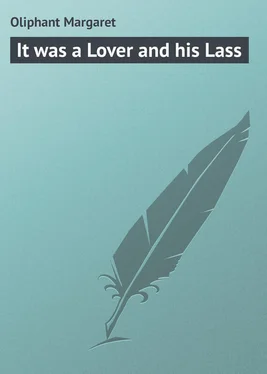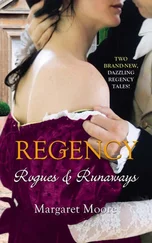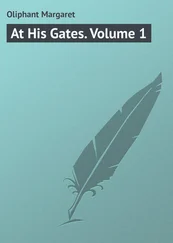Margaret Oliphant - It was a Lover and his Lass
Здесь есть возможность читать онлайн «Margaret Oliphant - It was a Lover and his Lass» — ознакомительный отрывок электронной книги совершенно бесплатно, а после прочтения отрывка купить полную версию. В некоторых случаях можно слушать аудио, скачать через торрент в формате fb2 и присутствует краткое содержание. ISBN: , Жанр: foreign_prose, на английском языке. Описание произведения, (предисловие) а так же отзывы посетителей доступны на портале библиотеки ЛибКат.
- Название:It was a Lover and his Lass
- Автор:
- Жанр:
- Год:неизвестен
- ISBN:http://www.gutenberg.org/ebooks/49597
- Рейтинг книги:3 / 5. Голосов: 1
-
Избранное:Добавить в избранное
- Отзывы:
-
Ваша оценка:
- 60
- 1
- 2
- 3
- 4
- 5
It was a Lover and his Lass: краткое содержание, описание и аннотация
Предлагаем к чтению аннотацию, описание, краткое содержание или предисловие (зависит от того, что написал сам автор книги «It was a Lover and his Lass»). Если вы не нашли необходимую информацию о книге — напишите в комментариях, мы постараемся отыскать её.
It was a Lover and his Lass — читать онлайн ознакомительный отрывок
Ниже представлен текст книги, разбитый по страницам. Система сохранения места последней прочитанной страницы, позволяет с удобством читать онлайн бесплатно книгу «It was a Lover and his Lass», без необходимости каждый раз заново искать на чём Вы остановились. Поставьте закладку, и сможете в любой момент перейти на страницу, на которой закончили чтение.
Интервал:
Закладка:
When he got up next morning, the mirth of the night was over; he felt then that the position was too serious for laughter. For a moment the temptation of giving up altogether a duty which was too much for him came over his mind. Why should not he go away altogether and keep what was his? He was not to blame; he had asked nothing, expected nothing. He was guiltless towards the descendants of his old friend, and they knew nothing either of him or of his intentions. He had but to go away, to walk back to the 'George' at Kilmorley, and turn back into the world, leaving his portmanteaux to follow him, and he would be free. But somehow this was an expedient which did not please his imagination at all. The little rural place, the people about who had become his friends, the family with which he felt he had so much to do, kept a visionary hold upon him from which he could not get loose. He struggled even a little, repeating to himself many things which he could do if he were to free himself. He had never seen London – he had never been in England. The season was not yet entirely over, nor London abandoned; he could yet find people there whom he had met, who would introduce him, who would carry him to those country-houses in which he had always heard so much of the charm of England lay. All this he went over deliberately, trying to persuade himself that in the circumstances it was the best thing to do; but the result of his thoughts was that, as soon as he felt it was decorous to do so, he set out for the Castle. One visit, in any case, could do, he reflected, no harm.
CHAPTER IX
The next day, as Adam had prophesied, the weather changed, or rather it changed during the night, and the morning rose pale and weeping, with a sky out of which all colour had departed, and an endless blast, almost white, so close was the shower, of falling rain. Little rivulets ran away down the pebbly slope of the village street towards the river when Lewis got up; the trees were all glistening; the birds all silenced; a perpetual patter of rain filling the air. The country carts that stood at the door of the 'Murkley Arms' had the air of having been boiled; the horse glossy yet sodden, with ears and tail in the most lugubrious droop; the paint of the wheels and shafts glistening, the carter, with a wet sack over his wet shoulders, looking as if the water could be wrung out of him. He was being served with a dram by Janet at the door, who had her shawl over her cap to preserve her.
"Now tak' my advice," she was saying, "and be content with that. It's good whiskey. If you stop at every door to get something to keep out the damp, ye'll be in a bonnie condition to go home to your wife at the hinder end."
"Would ye have me get my death o' cauld?" said the man.
"Eh!" said Janet, "I daurna refuse to serve ye; for ye would just gang straight to Luckie Todd's, and her whiskey's bad, and siller is a' her thocht; but weel I wat, if ye were my man, I wad rather ye got your death of cauld than of whiskey. And that's my principle, though I keep a public mysel'."
Lewis, standing at his window, with the paths and the roofs all glistening before him, and the sky so low down that it seemed almost to touch the high gable of the house opposite, listened to the dialogue with a smile. It was a new aspect under which he now saw the village life. Many of the doors were shut which usually stood open; the children had disappeared from the road; silence took the place of the small, cheerful noises, the calls of the women, the chatter of the infants; the cocks and hens, which generally strutted about in full liberty, had taken refuge beneath a cart, where they huddled together lugubriously – everything was changed. Lewis could not but think of young Stormont, with a shrug of malicious pleasure, as he amused himself with his breakfast: for he supposed erroneously that this must be one of the days of which Stormont had spoken so sadly, when there was nothing to do. But by-and-by Lewis also found that there was nothing to do. He laughed at himself, which was still more comic. Stormont was at home; he had his library, though he did not make use of it; and his mother's piano, though he knew nothing about music; and he had no doubt some sort of business concerning his small estate, and he had spoken of amusing himself with fly-making and gun-cleaning. But Lewis soon woke up to the sad conviction that, so far as he was concerned, there was absolutely nothing to occupy the heavy hours. Of the two or three books which the 'Murkley Arms' could boast, one was Robertson's 'History of Scotland' in a small form, with small print, discouraging to a careless reader, and another the 'Romance of the Forest.' He was not a great reader under the best of circumstances, and these did not tempt him. He had few correspondents, none indeed to whom he could sit down on a dreary day and unbosom himself. The only thing that offered him any distraction was his drawing. He took out his sketch-books, and selected one he had made on the water-side, in order to enlarge and complete it. But he was not enthusiastic enough to work steadily, and he was unfortunately aware that his slightest sketches were his best. When Janet came up-stairs "to speak about the denner," as she said, her compassion was aroused by his evident weariness.
"Adam's awa' to the watter," she said. "Watter below and watter aboon, he'll get plenty o't. It's a grand day for the fushin', though it's no so good for us poor mortals. Would ye no gang doon, and see how he's getting on?"
"But it pours," said Lewis, "and with water above and water below, as you say – "
"Hoot ay," said Janet, "but ye're young, and ye're neither sugar nor salt, you'll no melt. At your age a bit of a shower does little harm; and ye're just wrang biding in the house all day with nothing to do."
"That is true enough," Lewis said, but as he looked at the pouring rain and the wet roads he shook his head. "I don't see that one can gain much by getting wet, Mrs. Janet."
"Dear me! a young gentleman at your age! Weel, it's a grand thing to take care of yourself. It's just what ye canna get young folk to do. There's young Mr. Philip out on the water from the skreigh of day; he just never minds. I'm no saying it's good for him. But they say it's grand weather for the fushin', and that makes up for everything with them, the gomerals. If they had your sense, Mr. Murray."
Lewis did not think she had a very high opinion of his sense, and he was somewhat piqued by her suspicious semi-approval, and by her description of Stormont, in whom the young man had come to see an antagonistic type of mankind. The more fool he, if he had been out all the morning between the water below and the water above, all for the sake of a few fish. But the description piqued Lewis. He stood at his window, and looked out for the twentieth time, and it did not look tempting. Why, indeed, should he go out, and get himself wet and dirty to please the prejudices of Janet. He had always heard that the English went out in all weathers; that they had even a preference for mud and damp, characteristic features of their own climate. But why should he emulate this strange fancy? He sat down to his drawing again, but he did not get any satisfaction out of it. Not to be approved of was terrible to him. He could not bear that even Janet should have a small opinion of his hardiness and manly bearing. This acted so strongly upon Lewis that after a while he found himself pulling on his strongest boots and getting into his thickest great-coat. The boots were not very strong; he had never had any chance of those exposures to water and weather in which impervious coverings are necessary; but, having protected himself as well as he could, he sallied forth at last with his umbrella, and went down to the river-side. There was little or no wind, and the rain fell in a perpendicular flood, soaking everything. Lewis under his umbrella went patiently on, enduring it manfully, but unable to see any pleasure in his progress through the flood. He met Katie Seton and her brother near the church. She was covered up in an ulster, with a hood over her little hat. Her cheeks were like roses "just washed in a shower."
Читать дальшеИнтервал:
Закладка:
Похожие книги на «It was a Lover and his Lass»
Представляем Вашему вниманию похожие книги на «It was a Lover and his Lass» списком для выбора. Мы отобрали схожую по названию и смыслу литературу в надежде предоставить читателям больше вариантов отыскать новые, интересные, ещё непрочитанные произведения.
Обсуждение, отзывы о книге «It was a Lover and his Lass» и просто собственные мнения читателей. Оставьте ваши комментарии, напишите, что Вы думаете о произведении, его смысле или главных героях. Укажите что конкретно понравилось, а что нет, и почему Вы так считаете.












